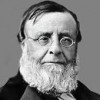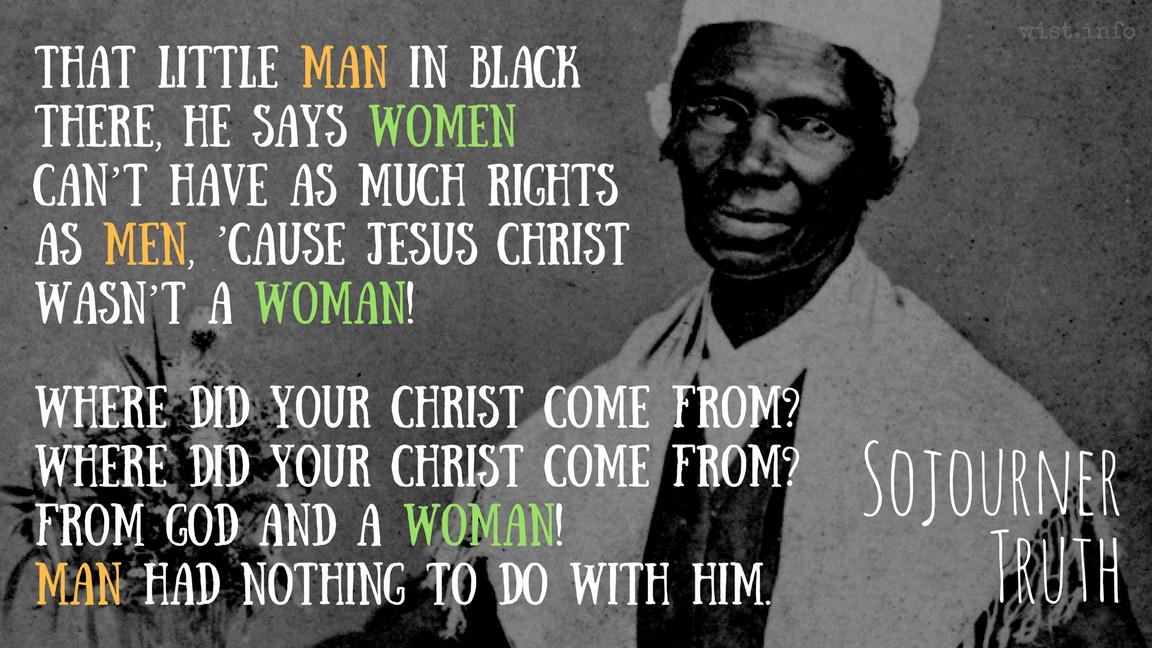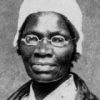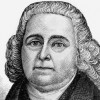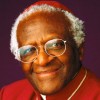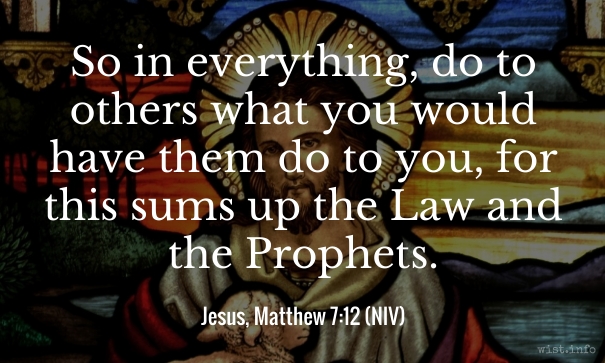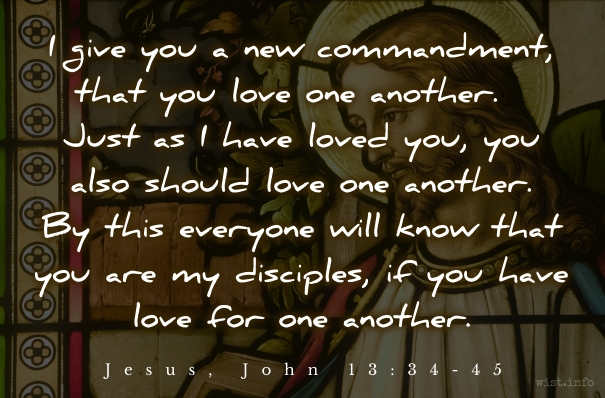You know not, will not know, what Christians are;
Their pride is to be Christians, never men;
Ay, even that which since their Founder’s time
Hath tinged their superstition with a touch
Of pure humanity, is prized by them
Never because ’tis human, but because
‘Twas preached and practised by their Jesus Christ.
‘Tis well for them he was so rare a man;
Well that they take his virtues upon trust;
But what to them the virtues of their Christ?
‘Tis was not his virtues, but his name alone
They seek to spread, that it may dominate
And cloud the names of other noble men;
Ay, ’tis the name, the name of Christ alone
Your Christian cares about.[Du kennst die Christen nicht, willst sie nicht kennen.
Ihr Stolz ist: Christen sein; nicht Menschen. Denn
Selbst das, was, noch von ihrem Stifter her,
Mit Menschlichkeit den Aberglauben würzt,
Das lieben sie, nicht weil es menschlich ist:
Weil’s Christus lehrt; weil’s Christus hat getan.—
Wohl ihnen, daß er so ein guter Mensch
Noch war! Wohl ihnen, daß sie seine Tugend
Auf Treu und Glaube nehmen können!—Doch
Was Tugend?—Seine Tugend nicht; sein Name
Soll überall verbreitet werden; soll
Die Namen aller guten Menschen schänden,
Verschlingen. Um den Namen, um den Namen
Ist ihnen nur zu tun.]Gotthold Lessing (1729-1781) German playwright, philosopher, dramaturg, writer
Nathan the Wise [Nathan der Weise], Act 2, sc. 1 [Sittah] (1779) [tr. Maxwell (1917)]
(Source)
(Source (German)). Alternate translations:
You do not know the christians.
You will not know them. 'Tis this people's pride
not to be men, but to be christians. Even
what of humane their founder felt, and taught,
and left to savour their fond superstition,
they value not because it is humane,
lovely, and good for man; they only prize it
because 'twas Christ who taught it, Christ who did it.
'Tis well for them he was so good a man:
well that they take his goodness all for granted,
and in his virtues put their trust. His virtues --
'Tis not his virtues, but his name alone
they wish to thrust upon us. -- 'Tis his name
which they desire should overspread the world,
should swallow up the name of all good men,
and put the best to shame. Tis his mere name
they care for --
[tr. Taylor (1790)]
Thou dost not know the Christians, wilt not know them.
Their pride, that is: the Christian; not the Man.
For even what, still coming from their founder,
With human worth, imbibes their superstition,
Is not adored by them, because 'tis human:
No, but because Christ taught, Christ acted so. --
'Tis well for them, that yet so good a man
He was! 'Tis well for them, that they may take
His virtue granted, and on faith! -- But what
Of virtue! -- Not his Virtue; no, his Name
They wish to spread all o'er the world; his name
Shall stigmatize the names of all good men,
And swallow them. The name, and but the name, --
That's what they cherish.
[tr. Reich (1860)]
You do not, will not, know the Christian race.
It is their pride not to be men, but Christians.
The virtue which their founder felt and taught,
The charity He mingled with their creed,
Is valued, not because it is humane,
And good, and lovely, but for this alone,
That it was Christ who taught it, Christ who did it.
;Tis well for them He was so good a man.
Well that they take His goodness all on trust.
And in His virtues put their faith. His virtues!
'Tis not His virtues, but His name alone
They wish to thrust upon us -- His mere name,
Which they desire should overspread the world,
Should swallow up the name of all good men.
And put the rest to shame. 'Tis for His name
Alone they care.
[tr. Boylan (1878)]
Thou knowest not the christians, will'st not know them:
Their pride is to be Christians, and not men.
For even that which from their Founder's time
Seasons their superstition with humanity, --
That love they not because 'tis human; -- no,
Because Christ taught it and Christ practised it.
'Tis well for them that he was really such
A good man! Well, that they can take on trust
His virtue! Yet what speak I of his virtue?
'Tis not his virtue, 'tis his name alone,
That over all the earth shall spread abroad,
To put to scorn and swallow up the name
Of every other good man. 'Tis the name,
The name alone they care for, they.
[tr. Corbett (1883)]
Thou knowest the Christians not -- wilt not know them.
Their pride is to be Christians -- not men. For
Even that humanity, which by their Founder
Was rooted in their superstition, that love they
Not because it is humane, but because
He taught it -- because so Christ hath done.
Tis well for them He was indeed so
Good a man. 'Tis well for them that they
His virtue can accept on faith, and on belief.
His virtue say I? Not His virtue. His name alone
Shall over all be spread, and shall the name
Of all good men shame and destroy. The name --
And nothing but the name -- is their concern.
[tr. Jacks (1894)]
You do not know the Christians, don’t want to know them. Their pride is to be Christians, not men. Because even what leavens superstition with mitigating aspects, -- dating back to their founder -- they don’t love because it is human. (They love it) because Christ teaches it, because Christ has done it. Lucky they that such a good man existed yet! Lucky they that they can take his virtue on faith and belief! But what virtue? Not his virtue, his name is to be propagated everywhere, is to desecrate the name of all good men, devour it. For the name, for the name only, they care.
[tr. Reinhardt (1950)]
You do not know the Christians, will not know them.
Their pride is to be Christians, and not men.
For even that which from their Founder’s day
With human nature spices superstition
They don’t love for its human worth: because
Their Jesus taught it, by him it was done. --
O well for them, that he was a good man!
And well for them, that they can take his virtue
On faith! -- But what of virtue? -- It’s not that
Shall overspread the world, but just his name;
That name shall swallow all the names of men,
Put them to shame. The name, the name alone,
Is all they care for.
[tr. Morgan (1955), l. 72ff]
You don't know Christians, and you'll never know them. Their pride's not to be men, its to be Christians. Even humanity -- which from the days of their dear Lord Jesus Christ has lessened superstition -- they love, not for its human quality, but only because Christ taught it and showed it in His deeds. It is indeed a blessing that He was so good a man, a man in whose virtues they can place their entire faith! But are His virtues really theirs? No, not at all, it's not His virtues but His name that they attempt to spread throughout the world and, in so doing, cloud with slander and obliterate the names of all good men. The name alone is everything to these Christians.
[tr. Ade (1972)]
Quotations about:
Jesus
Note not all quotations have been tagged, so Search may find additional quotes on this topic.
Without the Way, there is no going;
Without the Truth, there is no knowing;
Without the Life, there is no living.[Sine via non itur;
sine veritate non cognoscitur;
sine vita non vivitur.]Thomas à Kempis (c. 1380-1471) German-Dutch priest, author
The Imitation of Christ [De Imitatione Christi], Book 3, ch. 56, v. 1 (3.56.1) (c. 1418-27) [ed. Parker (1841)]
(Source)
The voice of Christ commenting on His own words in John 14:6, "I am the way, the truth, and the life."
These precise words are most common translation over the years, also rendered (with varying punctuation and capitalization) by Bagster (1860), Anon. (1901), Croft/Bolton (1940), Daplyn (1952), and Creasy (1989).
(Source (Latin)). Alternate translations:
Without a way no man may go, and without the truth no man may know, and without life no man may live.
[tr. Whitford/Raynal (1530/1871)]
Without a way, no man can go; without the truth, no man can know; and without life no man can live
[tr. Whitford/Gardiner (1530/1955)]
Without the way there is no going aright, without truth there is no knowing aright, without life there is no living at all.
[tr. Page (1639), 3.56.3]
Without the Way can be no Walking; without the Truth no knowledge; without the Life no Living.
[tr. Stanhope (1696; 1706 ed.), ch. 61]
Without the way which I have opened, thou canst not return to paradise ; without the truth which I communicate, thou canst not know the way; and without the life which I quicken, thou canst not obey the truth.
[tr. Payne (1803), ch. 44]
Without the way, there is no journeying; without truth, there is no knowledge; without life, there is no living.
[tr. Dibdin (1851), 3.51.1]
Without the way thou canst not go, without the truth thou canst not know, without the life thou canst not live.
[tr. Benham (1874)]
Without the Way, there is no progress; without the Truth, there is no knowledge; without the Life, there is no living.
[tr. Sherley-Price (1952)]
Without a way, a road, there can be no going along it; without truth, no object of knowledge; without life, no living.
[tr. Knox-Oakley (1959)]
Without the way, there is no travelling, without the truth, no knowing, without the life, no living.
[tr. Knott (1962)]
Without the Way there is no journey. Without the Truth there is no knowledge. Without Life there is no living.
[tr. Rooney (1979)]
None speak of the bravery, the might, or the intellect of Jesus; but the devil is always imagined as a being of acute intellect, political cunning, and the fiercest courage. These universal and instinctive tendencies of the human mind reveal much.
Lydia Maria Child (1802-1880) American abolitionist, activist, journalist, suffragist
Letters from New-York, # 34, 1843-01 “Woman’s Rights” (1843)
(Source)
Had the doctrines of Jesus been preached always as pure as they came from his lips, the whole civilized world would now have been Christian. I rejoice that in this blessed country of free inquiry and belief, which has surrendered its creed and conscience to neither kings nor priests, the genuine doctrine of one only God is reviving, and I trust that there is not a young man now living in the United States who will not die an Unitarian.
Thomas Jefferson (1743-1826) American political philosopher, polymath, statesman, US President (1801-09)
Letter to Benjamin Waterhouse (26 Jun 1822)
(Source)
Christ by his crucifixion demonstrated exactly what the assault of cruelty on the innocent means; and the subsequent services devised by the early church commemorated the beauty of the virtue that was slain and the beastliness shown by the slayer, and reiterated the warning that this was the kind of crime man was inherently likely to commit unless he watched himself. There could be no more proper medicine for the human disease. But the church has poured as much of the draft as possible down the drain by its attempts to account for the crucifixion of Christ as an atonement for the sins of man instead of a demonstration of them.
Rebecca West (1892-1983) British author, journalist, literary critic, travel writer [pseud. for Cicily Isabel Fairfield]
“Pleasure Be Your Guide,” The Nation, “Living Philosophies” series #10 (25 Feb 1939)
(Source)
Adapted into Clifton Fadiman, I Believe: The Personal Philosophies of Certain Eminent Men and Women of Our Time (1952).
Christ died for our sins. Dare we make his martyrdom meaningless by not committing them?
Jules Feiffer (b. 1929) American cartoonist, authork, satirist
Little Murders, Act 1 (1967)
(Source)
Motto of "The First Existential Church."
There has only been one Christian. They caught Him and crucified Him early.
Mark Twain (1835-1910) American writer [pseud. of Samuel Clemens]
Mark Twain’s Notebook (1933) [ed. Paine]
(Source)
Christ saw much in this world to weep over, and much to pray over: but he saw nothing in it to look upon with contempt.
In the most deeply significant of the legends concerning Jesus, we are told how the devil took him up into a high mountain and showed him all the kingdoms of the world in a moment of time; and the devil said unto him: “All this power will I give unto thee, and the glory of them, for that is delivered unto me, and to whomsoever I will, I give it. If thou, therefore, wilt worship me, all shall be thine.” Jesus, as we know, answered and said “Get thee behind me, Satan!” And he really meant it; he would have nothing to do with worldly glory, with “temporal power;” he chose the career of a revolutionary agitator, and died the death of a disturber of the peace. And for two or three centuries his church followed in his footsteps, cherishing his proletarian gospel. The early Christians had “all things in common, except women;” they lived as social outcasts, hiding in deserted catacombs, and being thrown to lions and boiled in oil.
But the devil is a subtle worm; he does not give up at one defeat, for he knows human nature, and the strength of the forces which battle for him. He failed to get Jesus, but he came again, to get Jesus’ church. He came when, through the power of the new revolutionary idea, the Church had won a position of tremendous power in the decaying Roman Empire; and the subtle worm assumed the guise of no less a person than the Emperor himself, suggesting that he should become a convert to the new faith, so that the Church and he might work together for the greater glory of God. The bishops and fathers of the Church, ambitious for their organization, fell for this scheme, and Satan went off laughing to himself. He had got everything he had asked from Jesus three hundred years before; he had got the world’s greatest religion.
Upton Sinclair (1878-1968) American writer, journalist, activist, politician
The Profits of Religion, Book Seven “The Church of the Social Revolution” (1917)
(Source)
I decided that perhaps I would like to think of myself as an extremist — in the light of the spirit which made Jesus an extremist for love. If it sounds as though I am comparing myself to the Savior, let me remind you that all who honor themselves with the claim of being “Christians” should compare themselves to Jesus. Thus I consider myself an extremist for that brotherhood of man which Paul so nobly expressed: “There is neither Jew nor Greek, there is neither bond nor free, there is neither male nor female: for ye are all one in Christ Jesus.” Love is the only force on earth that can be dispensed or received in an extreme manner, without any qualifications, without any harm to the giver or to the receiver.
Martin Luther King, Jr. (1929-1968) American clergyman, civil rights leader, social activist, preacher
Playboy interview (Jan 1965)
(Source)
For some reason, the most vocal Christians among us never mention the Beatitudes. But, often with tears in their eyes, they demand that the Ten Commandments be posted in public buildings. And of course, that’s Moses, not Jesus. I haven’t heard one of them demand that the Sermon on the Mount, the Beatitudes, be posted anywhere. “Blessed are the merciful” in a courtroom? “Blessed are the peacemakers” in the Pentagon? Give me a break!
Kurt Vonnegut, Jr. (1922-2007) American novelist, journalist
A Man Without A Country, ch. 9 (2005)
(Source)
The Beatitudes (Matthew 5).
That little man in black there, he says women can’t have as much rights as men, ’cause Jesus Christ wasn’t a woman! Where did your Christ come from? Where did your Christ come from? From God and a woman! Man had nothing to do with Him.
Sojourner Truth (1797-1883) American abolitionist, women's rights activist [b. Isabella Baumfree]
“Ain’t I A Woman?” speech, Women’s Convention, Akron, Ohio (1851)
(Source)
For unto us a child is born, unto us a son is given; and the government shall be upon his shoulders; and his name shall be called Wonderful, Counsellor, the Mighty God, the everlasting Father, the Prince of Peace.
The Bible (The Old Testament) (14th - 2nd C BC) Judeo-Christian sacred scripture [Tanakh, Hebrew Bible], incl. the Apocrypha (Deuterocanonicals)
Isaiah 9:6 [KJV (1611)]
(Source)
Alternate translations:
For there is a child born for us, a son given to us and dominion is laid on his shoulders; and this is the name they give him: Wonder-Counsellor, Mighty-God, Eternal-Father, Prince-of-Peace.
[JB (1966), 9:5]
A child is born to us!
A son is given to us!
And he will be our ruler.
He will be called, “Wonderful Counselor,”
“Mighty God,” “Eternal Father,”
“Prince of Peace.”
[GNT (1976)]
For a child has been born for us,
a son given to us;
authority rests upon his shoulders,
and he is named
Wonderful Counselor, Mighty God,
Everlasting Father, Prince of Peace.
[NRSV (1989 ed.)]
For a child has been born to us,
A son has been given us.
And authority has settled on his shoulders.
He has been named
“The Mighty God is planning grace;
The Eternal Father, a peaceable ruler.”
[RJPS (2023 ed.), 9:5]
Now Jesus himself saw the power that competition holds over men. He did not ignore it. Yet he does something with the conception of competition that hadn’t been done before. He takes the conception which has been used for lower purposes and rescues it from many of its dangers, by suggesting a higher method of its use. This is how he applied the term to his disciples. He saw them in danger of using it for low purposes. They wanted to compete for reputation and position — “which of them should be accounted greatest?” Jesus says so, if you must use the power of competition, if you must compete with on another, make it as noble as you can by using it on noble things. Use it for a fine, unselfish thing. “He that is greatest among you shall serve.” Use it for human good. Who shall be the most useful. Compete with one another in humility. See which can be the truest servant. It seems that Christ says, “Use it, but use it for higher and holier purposes. Use it not to surpass one another in esteem, but use it to increase the amount of usefulness and brother-help.” Such conceptions of competition lead to the surprising and ennobling position that there can be competition without hate and jealousy. Behold! You can struggle to beat and yet rejoice to be beaten.
Martin Luther King, Jr. (1929-1968) American clergyman, civil rights leader, social activist, preacher
“Cooperative Competition / Noble Competition,” sermon outline
(Source)
For a man to love again where he is loved, it is the charity of publicans contracted by mutual profit and good offices; but to love a man’s enemies is one of the cunningest points of the law of Christ, and an imitation of the divine nature.
It’s okay if you don’t want to feed the hungry, or heal the sick, or house the homeless. Just don’t say you’re doing it for their own good. Don’t say you’d like to help people, but your hands are tied, because if you did it would cause a “culture of dependency,” or “go against the Bible,” or, worst of all, “rob them of their freedom” to be sick and hungry. Just admit you’re selfish, and based on how little your beliefs mirror the actual teachings of Jesus you might as well be worshiping Despicable Me.
You’re supposed to look at that figure of Christ on the cross and think, “How could a man suffer like that and forgive?” Not, “Romans are pussies — he still has his eyes.”
If you rejoice in revenge, torture, and war […] you cannot say you’re a follower of the guy who explicitly said “love your enemies” and “do good to those who hate you”. The next line isn’t, “And if that doesn’t work, send a titanium-fanged dog to rip his nuts off”. Jesus lays on that hippie stuff pretty thick! He has lines like, “do not repay evil with evil”, and “do not take revenge on someone who wrongs you.” Really! It’s in that book you hold up when you scream at gay people.
Jesus is great, I love Jesus — is there a better role model? No. It’s religion, it’s the people who get in between, it’s the bureaucracy, you know? […] It’s how people abuse Jesus. Was there ever a greater victim of name dropping than Jesus Christ?
William "Bill" Maher (b. 1956) American comedian, political commentator, critic, television host.
Be More Cynical (2000)
(Source)
And, lo, the angel of the Lord came upon them, and the glory of the Lord shone round about them: and they were sore afraid. And the angel said unto them, Fear not: for, behold, I bring you good tidings of great joy, which shall be to all people. For unto you is born this day in the city of David a Saviour, which is Christ the Lord. And this shall be a sign unto you; Ye shall find the babe wrapped in swaddling clothes, lying in a manger. And suddenly there was with the angel a multitude of the heavenly host praising God, and saying, “Glory to God in the highest, and on earth peace, good will toward men.”
The Bible (The New Testament) (AD 1st - 2nd C) Christian sacred scripture
Luke 2:9-14 [KJV]
Alt. trans:
- Then an angel of the Lord stood before them, and the glory of the Lord shone around them, and they were terrified. But the angel said to them, “Do not be afraid; for see—I am bringing you good news of great joy for all the people: to you is born this day in the city of David a Savior, who is the Messiah, the Lord. This will be a sign for you: you will find a child wrapped in bands of cloth and lying in a manger.” And suddenly there was with the angel a multitude of the heavenly host, praising God and saying, “Glory to God in the highest heaven, and on earth peace among those whom he favors!” [NRSV]
- An angel of the Lord appeared to them, and the glory of the Lord shone around them, and they were terrified. But the angel said to them, “Do not be afraid. I bring you good news that will cause great joy for all the people. Today in the town of David a Savior has been born to you; he is the Messiah, the Lord. This will be a sign to you: You will find a baby wrapped in cloths and lying in a manger.” Suddenly a great company of the heavenly host appeared with the angel, praising God and saying, “Glory to God in the highest heaven, and on earth peace to those on whom his favor rests.” [NIV]
I acknowledge myself a unitarian — Believing that the Father alone, is the supreme God, and that Jesus Christ derived his Being, and all his powers and honors from the Father. […] There is not any reasoning which can convince me, contrary to my senses, that three is one, and one three.
Now who can hear Christ declare that his kingdom is not of this world, and yet believe that this blending of church and state together can be pleasing to him?
Isaac Backus (1724-1806) American clergyman and historian
An Appeal to the Public for Religious Liberty (1773)
(Source)
I don’t know what you all believe, and I don’t really care — but you have to admit that beliefs are odd. Lots of Christians wear crosses around their necks. You really think when Jesus comes back, he ever wants to see a fucking cross?
The doctrines of Jesus are simple, and tend all to the happiness of man.
- That there is one only God, and he is all perfect.
- That there is a future state of rewards and punishments.
- That to love God with all thy heart and thy neighbor as thyself is the sum of religion.
These are the great points on which he endeavored to reform the religion of the Jews. But compare with these the demoralizing dogmas of Calvin.
- That there are three Gods.
- That good works, or the love of our neighbor, are nothing.
- That faith is every thing, and the more incomprehensible the proposition, the more merit in its faith.
- That reason in religion is of unlawful use.
- That God, from the beginning, elected certain individuals to be saved, and certain others to be damned; and that no crimes of the former can damn them; no virtues of the latter save.
Now, which of these is the true and charitable Christian? He who believes and acts on the simple doctrines of Jesus? Or the impious dogmatists as Athanasius and Calvin? Verily I say these are the false shepherds foretold as to enter not by the door into the sheepfold, but to climb up some other way. They are mere usurpers of the Christian name, teaching a counter-religion made up of the deliria of crazy imaginations, as foreign from Christianity as is that of Mahomet.
Thomas Jefferson (1743-1826) American political philosopher, polymath, statesman, US President (1801-09)
Letter to Benjamin Waterhouse (26 Jun 1822)
(Source)
Among the sayings & discourses imputed to [Jesus] by his biographers, I find many passages of fine imagination, correct morality, and of the most lovely benevolence: and others again of so much ignorance, so much absurdity, so much untruth, charlatanism, and imposture, as to pronounce it impossible that such contradictions should have proceeded from the same being. I separate therefore the gold from the dross; restore to him the former, & leave the latter to the stupidity of some, and roguery of others of his disciples. Of this band of dupes and impostors, Paul was the great Coryphaeus, and first corrupter of the doctrines of Jesus. These palpable interpolations and falsifications of his doctrines led me to try to sift them apart.
Thomas Jefferson (1743-1826) American political philosopher, polymath, statesman, US President (1801-09)
Letter to William Short (13 Apr 1820)
(Source)
On his personally abridged edition of the Bible.
But the greatest of all the Reformers of the depraved religion of his own country, was Jesus of Nazareth. Abstracting what is really his from the rubbish in which it is buried, easily distinguished by its lustre from the dross of his biographers, and as separable from that as the diamond from the dung hill, we have the outlines of a system of the most sublime morality which has ever fallen from the lips of man: outlines which it is lamentable he did not live to fill up. Epictetus & Epicurus give us laws for governing ourselves, Jesus a supplement of the duties & charities we owe to others. The establishment of the innocent and genuine character of this benevolent Moralist, and the rescuing it from the imputation of imposture, which has resulted from artificial systems,* invented by Ultra-Christian sects, unauthorized by a single word ever uttered by him, is a most desirable object, and one to which Priestley has successfully devoted his labors and learning. It would in time, it is to be hoped, effect a quiet euthanasia of the heresies of bigotry and fanaticism which have so long triumphed over human reason, and so generally & deeply afflicted mankind; but this work is to be begun by winnowing the grain from the chaff of the historians of his life.
* e.g. The immaculate conception of Jesus, his deification, the creation of the world by him, his miraculous powers, his resurrection & visible ascension, his corporeal presence in the Eucharist, the Trinity, original sin, atonement, regeneration, election, orders of Hierarchy, Etc.
Thomas Jefferson (1743-1826) American political philosopher, polymath, statesman, US President (1801-09)
Letter to William Short (31 Oct 1819)
(Source)
As to Jesus of Nazareth, my Opinion of whom you particularly desire, I think the System of Morals and his Religion as he left them to us, the best the World ever saw, or is likely to see; but I apprehend it has received various corrupting Changes, and I have with most of the present Dissenters in England, some Doubts as to his Divinity: tho’ it is a Question I do not dogmatise upon, having never studied it, and think it needless to busy myself with it now, when I expect soon an Opportunity of knowing the Truth with less Trouble. I see no harm however in its being believed, if that Belief has the good Consequence as probably it has, of making his Doctrines more respected and better observed, especially as I do not perceive that the Supreme takes it amiss, by distinguishing the Believers, in his Government of the World, with any particular Marks of his Displeasure.
Benjamin Franklin (1706-1790) American statesman, scientist, philosopher, aphorist
Letter to Ezra Stiles (9 Mar 1790)
(Source)
Do not be frightened from this inquiry by any fear of its consequences. If it ends in a belief that there is no god, you will find incitements to virtue in the comfort and pleasantness you feel in its exercise, and the love of others which it will procure you. If you find reason to believe there is a God, a consciousness that you are acting under his eye, and that he approves you, will be a vast additional incitement; if that there be a future state, the hope of a happy existence in that increases the appetite to deserve it; if that Jesus was also a god, you will be comforted by a belief of his aid and love.
Thomas Jefferson (1743-1826) American political philosopher, polymath, statesman, US President (1801-09)
Letter to Peter Carr (10 Aug 1787)
(Source)
Hence we see good men in all religions, and as many in one as another. It is then a matter of principle with me to avoid disturbing the tranquility of others by the expression of any opinion on the innocent questions on which we schismatize, & think it enough to hold fast to those moral precepts which are of the essence of Christianity, & of all other religions. No where are these to be found in greater purity than in the discourses of the great reformer of religion whom we follow.
Thomas Jefferson (1743-1826) American political philosopher, polymath, statesman, US President (1801-09)
Letter to James Fishback [draft] (27 Sep 1809)
(Source)
In the final version of the letter, this passage read:
We all agree in the obligation of the moral precepts of Jesus, & no where will they be found delivered in greater purity than in his discourses. it is then a matter of principle with me to avoid disturbing the tranquility of others by the expression of any opinion on the innocent questions on which we schismatise.
But a short time elapsed after the death of the great reformer of the Jewish religion before his principles were departed from by those who professed to be his special servants, & perverted into an engine for enslaving mankind, and aggrandizing their oppressors in church & state: that the purest system of morals ever before preached to man has been adulterated & sophisticated, by artificial constructions, into a mere contrivance to filch wealth & power to themselves, that rational men not being able to swallow their impious heresies, in order to force them down their throats, they raise the hue & cry of infidelity, while themselves are the greatest obstacles to the advancement of the real doctrines of Jesus, and do in fact constitute the real Anti-Christ.
Thomas Jefferson (1743-1826) American political philosopher, polymath, statesman, US President (1801-09)
Letter to William Baldwin (unsent) (19 Jan 1810)
(Source)
Jesus replied, “‘You shall not murder, you shall not commit adultery, you shall not steal, you shall not give false testimony, honor your father and mother,’ and ‘love your neighbor as yourself.'” “All these I have kept,” the young man said. “What do I still lack?” Jesus answered, “If you want to be perfect, go, sell your possessions and give to the poor, and you will have treasure in heaven. Then come, follow me.” When the young man heard this, he went away sad, because he had great wealth.
The Bible (The New Testament) (AD 1st - 2nd C) Christian sacred scripture
Matthew 19:19-22 [NIV]
See Matthew 22:36-40.
This family has no outsiders. Everyone is an insider. When Jesus said, “I, if I am lifted up, will draw …” Did he say, “I will draw some”? “I will draw some, and tough luck for the others”? He said, “I, if I be lifted up, will draw all.” All! All! All! — Black, white, yellow; rich, poor; clever, not so clever; beautiful, not so beautiful. All! All! It is radical. All! Saddam Hussein, Osama bin Laden, Bush — all! All! All are to be held in this incredible embrace. Gay, lesbian, so-called “straight;” all! All! All are to be held in the incredible embrace of the love that won’t let us go.
Desmond Tutu (1931-2021) South African cleric, Anglican Archbishop of Cape Town, Nobel Laureate
“And God Smiles,” Sermon, All Saints Church, Pasadena, California (6 Nov 2005)
The Bible passage referenced is John 12:32.
You have heard that it was said, “You shall love your neighbor and hate your enemy.” But I say to you, Love your enemies and pray for those who persecute you, so that you may be sons of your Father who is in heaven.
The Bible (The New Testament) (AD 1st - 2nd C) Christian sacred scripture
Matthew 5:43-45
See Matthew 22:36-40.
And the day will come when the mystical generation of Jesus, by the supreme being as his father in the womb of a virgin will be classed with the fable of the generation of Minerva in the brain of Jupiter. But may we hope that the dawn of reason and freedom of thought in these United States will do away with this artificial scaffolding, and restore to us the primitive and genuine doctrines of this most venerated reformer of human errors.
Thomas Jefferson (1743-1826) American political philosopher, polymath, statesman, US President (1801-09)
Letter to John Adams (11 Apr 1823)
(Source)
But the whole history of these books [the Bible] is so defective and doubtful that it seems vain to attempt minute enquiry into it: and such tricks have been plaid with their text, and with the texts of other books relating to them, that we have a right, from that cause, to entertain much doubt what parts of them are genuine. In the New testament there is internal evidence that parts of it have proceeded from an extraordinary man; and that other parts are of the fabric of very inferior minds. It is as easy to separate those parts, as to pick out diamonds from dunghills.
Thomas Jefferson (1743-1826) American political philosopher, polymath, statesman, US President (1801-09)
Letter to John Adams (24 Jan 1814)
(Source)
In whatsoever Condition thou art, still ask thyself, What would my blessed Savior have thought, said, and done in this Case.
Thomas Fuller (1654-1734) English physician, preacher, aphorist, writer
Introductio ad Prudentiam, # 693 (1725)
(Source)
"What Would Jesus Do?"
If this is going to be a Christian nation that doesn’t help the poor, either we have to pretend that Jesus is just as selfish as we are or we’ve got to acknowledge that he commanded us to love the poor and serve the needy without condition. And then admit that we just don’t want to do it.
Stephen Colbert (b. 1964) American political satirist, writer, comedian
“Jesus Is a Liberal Democrat,” The Colbert Report (16 Dec 2010)
Full video.
Therefore all things whatsoever ye would that men should do to you, do ye even so to them: for this is the law and the prophets.
The Bible (The New Testament) (AD 1st - 2nd C) Christian sacred scripture
Matthew 7:12 (KJV)
Variants:
- Popularly, "Do unto others as you would have them do unto you."
- NIV: "So in everything, do to others what you would have them do to you, for this sums up the Law and the Prophets."
- NRSV: "In everything do to others as you would have them do to you; for this is the law and the prophets."
- TEV: "Do for others what you want them to do for you: this is the meaning of the Law of Moses and of the teachings of the prophets."
Note: The "Golden Rule" has been expressed in many ways by many religious and philosophical teachers. Several of these in WIST are or will be cross-referenced to this quotation (as trackbacks), not to lend it primacy, but because this is the most well-known formulation of it in the Western world, and to simplify the cross-referencing to one central point.
I give you a new commandment, that you love one another. Just as I have loved you, you also should love one another. By this everyone will know that you are my disciples, if you have love for one another.
The Bible (The New Testament) (AD 1st - 2nd C) Christian sacred scripture
John 13:34-45 (NRSV)
Alternate translations:
- NIV: "A new command I give you: Love one another. As I have loved you, so you must love one another. By this all men will know that you are my disciples, if you love one another."
- KJV: "A new commandment I give unto you, That ye love one another; as I have loved you, that ye also love one another. By this shall all men know that ye are my disciples, if ye have love one to another."
- "A new commandment I give to you, that you love one another; even as I have loved you, that you also love one another. By this all men will know that you are my disciples, if you have love for one another."
See Matthew 22:36-40.
“Teacher, which is the greatest commandment in the Law?” Jesus replied: ” ‘Love the Lord your God with all your heart and with all your soul and with all your mind.’ This is the first and greatest commandment. And the second is like it: ‘Love your neighbor as yourself.’ All the Law and the Prophets hang on these two commandments.”
How many observe Christ’s Birth-day! How few, his Precepts! O! ’tis easier to keep Holidays than Commandments.
Benjamin Franklin (1706-1790) American statesman, scientist, philosopher, aphorist
Poor Richard’s Almanack (1743)
(Source)
If it has to choose who is to be crucified, the crowd will always save Barabbas.
[S’il faut choisir un crucifié, la foule sauve toujours Barabbas.]
Jean Cocteau (1889-1963) French writer, filmmaker, artist
“Le Coq et l’Arlequin” (1918), Le Rappel à l’ordre (1926)
(Source)








